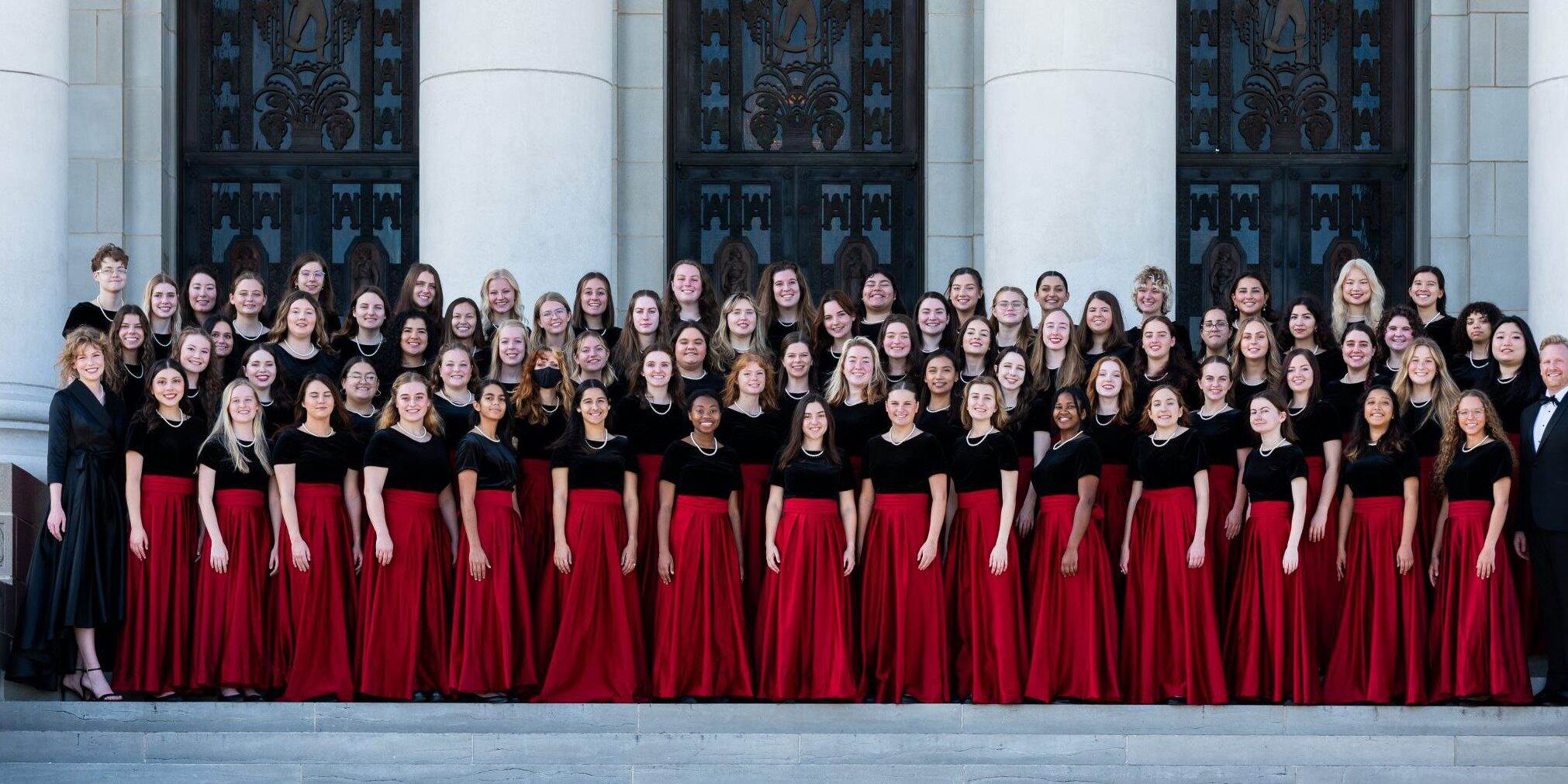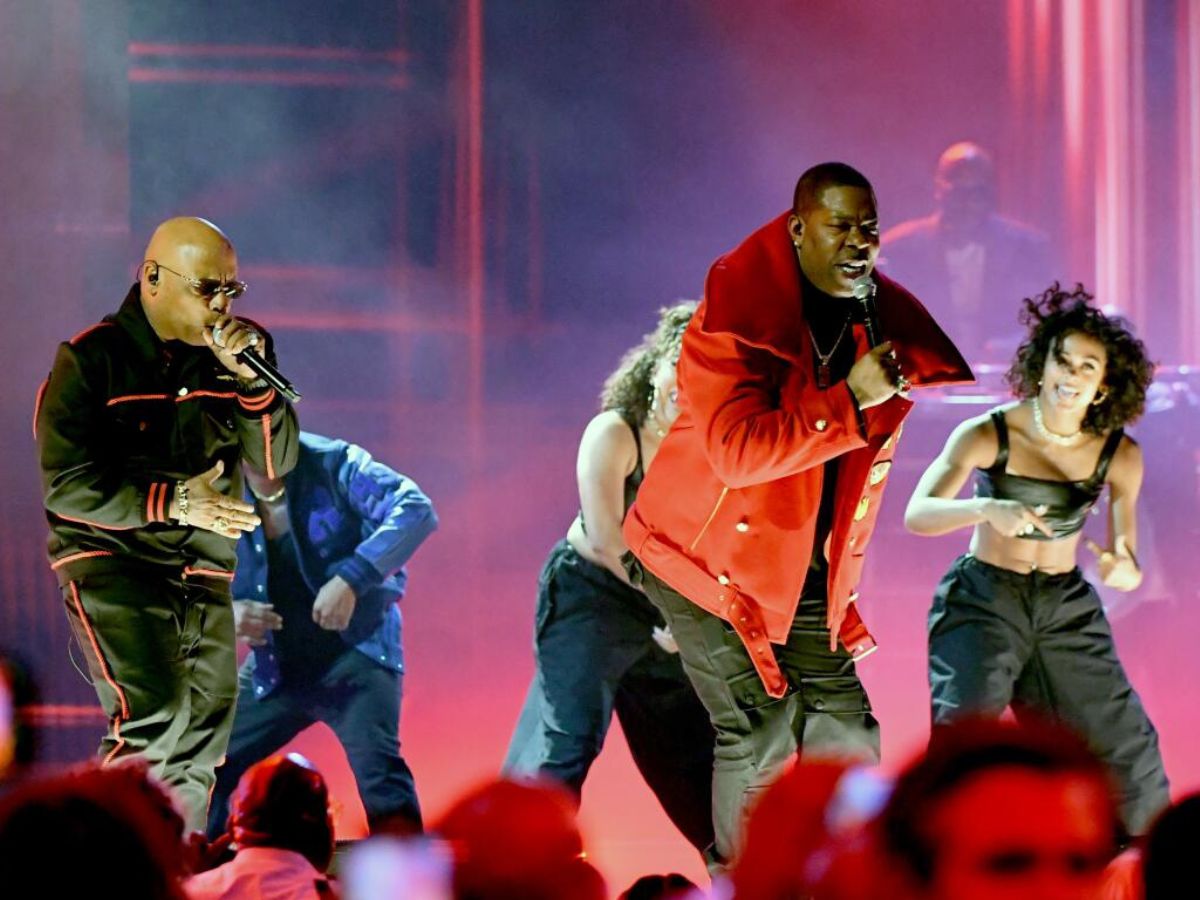Home>Production & Technology>Songwriter>How Do Performing Rights Organizations Pay The Songwriter And The Publisher


Songwriter
How Do Performing Rights Organizations Pay The Songwriter And The Publisher
Published: February 25, 2024
Learn how performing rights organizations pay songwriters and publishers. Understand the process and ensure you receive fair compensation for your work. Discover the details now.
(Many of the links in this article redirect to a specific reviewed product. Your purchase of these products through affiliate links helps to generate commission for AudioLover.com, at no extra cost. Learn more)
Table of Contents
Introduction
Performing rights organizations (PROs) play a pivotal role in the music industry by ensuring that songwriters and publishers receive fair compensation for the public performance of their musical works. These organizations act as intermediaries between music users, such as radio stations, streaming services, live venues, and businesses, and the creators of the music. Through their efforts, PROs collect royalties for the public performance of music and distribute these earnings to the rightful copyright holders.
Understanding the inner workings of PROs is essential for songwriters and publishers seeking to monetize their creative works effectively. By comprehending how these organizations operate, individuals within the music industry can navigate the complex landscape of royalty collection and payment distribution. This article delves into the intricate processes involved in how PROs collect and distribute royalties to songwriters and publishers, shedding light on the mechanisms that underpin the financial compensation system for musical compositions.
As we embark on this exploration, it's important to recognize the significance of PROs in safeguarding the rights and interests of music creators. Through their diligent efforts, PROs contribute to the sustainability of the music ecosystem, enabling songwriters and publishers to derive income from the public performance of their compositions. By gaining insights into the functions of PROs, songwriters and publishers can better comprehend the mechanisms through which they receive royalties, empowering them to make informed decisions about their creative endeavors and financial aspirations.
In the subsequent sections, we will delve into the intricate processes through which PROs collect and distribute royalties, providing a comprehensive understanding of the payment mechanisms for songwriters and publishers. By unraveling the intricacies of royalty collection and distribution, this article aims to equip individuals in the music industry with valuable knowledge that can enhance their financial literacy and empower them to navigate the realm of music royalties with confidence and acumen.
Understanding Performing Rights Organizations
Performing Rights Organizations (PROs) serve as crucial entities within the music industry, tasked with the responsibility of ensuring that songwriters and publishers receive fair compensation for the public performance of their musical works. These organizations act as intermediaries, representing the interests of music creators and facilitating the collection and distribution of royalties derived from the public performance of music.
PROs operate by entering into licensing agreements with various music users, including radio stations, streaming services, live venues, and businesses. These agreements grant music users the legal right to publicly perform the musical works represented by the PRO. In return, the music users pay licensing fees to the PROs for the usage of the music in their respective platforms or establishments.
By consolidating the rights to publicly perform a vast repertoire of musical works, PROs streamline the process for music users to access and utilize a diverse range of compositions. This simplifies the licensing process for music users, allowing them to comply with copyright regulations while gaining access to an extensive catalog of music for public performance.
Furthermore, PROs play a pivotal role in monitoring and tracking the public performance of musical works. Through advanced monitoring technologies and comprehensive databases, PROs are able to identify when and where music is publicly performed, enabling them to accurately track and collect royalties for the usage of copyrighted compositions.
In essence, PROs function as guardians of the rights of music creators, ensuring that their creative works are respected and that they receive rightful compensation for the public performance of their compositions. By establishing licensing agreements, monitoring music usage, and collecting royalties, PROs contribute to the sustainability of the music industry, fostering a fair and equitable environment where songwriters and publishers can derive income from the public dissemination of their musical creations.
Understanding the pivotal role of PROs in the music ecosystem is essential for songwriters and publishers, as it provides them with insights into the mechanisms through which their royalties are collected and distributed. By comprehending the functions of PROs, music creators can navigate the complex landscape of royalty collection with clarity and insight, empowering them to make informed decisions about their creative endeavors and financial pursuits.
How Performing Rights Organizations Collect Royalties
Performing Rights Organizations (PROs) employ a multifaceted approach to collect royalties for the public performance of musical works. These organizations leverage a combination of licensing agreements, advanced monitoring technologies, and comprehensive databases to ensure that music users comply with copyright regulations and compensate songwriters and publishers for the usage of their compositions.
One of the primary methods through which PROs collect royalties is by entering into licensing agreements with music users. These agreements grant music users the legal right to publicly perform the vast repertoire of musical works represented by the PRO. In exchange for this authorization, music users are required to pay licensing fees to the PROs, reflecting the value derived from the public performance of the music. By establishing these licensing agreements, PROs streamline the process for music users to access and utilize a diverse range of compositions while ensuring that songwriters and publishers receive fair compensation for the public dissemination of their creative works.
In addition to licensing agreements, PROs utilize sophisticated monitoring technologies to track the public performance of musical works. These technologies encompass advanced systems that can identify when and where music is publicly performed, enabling PROs to monitor a wide array of platforms, including radio stations, streaming services, live venues, and businesses. By leveraging these monitoring technologies, PROs can accurately track the usage of copyrighted compositions, ensuring that royalties are collected for each instance of public performance.
Furthermore, PROs maintain comprehensive databases that catalog the musical works represented by the organization. These databases serve as repositories of valuable information, allowing PROs to manage and track the extensive repertoire of compositions for which they hold the rights. By maintaining meticulous records of musical works and their respective copyright holders, PROs can effectively monitor the public performance of music and collect royalties on behalf of the songwriters and publishers.
In essence, the collection of royalties by PROs is a multifaceted process that involves the establishment of licensing agreements, the deployment of advanced monitoring technologies, and the maintenance of comprehensive databases. Through these concerted efforts, PROs ensure that songwriters and publishers receive rightful compensation for the public performance of their musical works, contributing to the sustainability and integrity of the music industry.
How Performing Rights Organizations Distribute Royalties
Performing Rights Organizations (PROs) play a pivotal role in the equitable distribution of royalties to songwriters and publishers, ensuring that creators receive fair compensation for the public performance of their musical works. The process of royalty distribution by PROs involves meticulous tracking, data analysis, and allocation of earnings to the rightful copyright holders.
Upon the collection of royalties from music users, PROs embark on the intricate task of distributing these earnings to the appropriate songwriters and publishers. This involves a comprehensive process of data analysis, where PROs utilize advanced systems to identify the public performance of specific musical works and quantify the corresponding royalties generated. By leveraging sophisticated data analytics, PROs are able to ascertain the usage patterns of musical compositions across various platforms, providing valuable insights into the popularity and dissemination of individual works.
Once the royalties are meticulously tracked and analyzed, PROs proceed with the allocation of earnings to the respective copyright holders. This allocation is based on the documented ownership and representation of the musical works within the PRO's repertoire. Songwriters and publishers who have entrusted their works to the PRO for representation are entitled to receive their rightful share of the collected royalties. The allocation process is underpinned by the comprehensive databases maintained by PROs, which catalog the ownership and usage details of a vast array of musical compositions.
Furthermore, PROs adhere to transparent and equitable distribution practices, ensuring that royalties are allocated in a fair and impartial manner. This commitment to fairness is integral to the ethos of PROs, as it upholds the principles of integrity and equity within the music industry. By implementing robust distribution protocols, PROs foster a climate where songwriters and publishers can trust in the accuracy and fairness of royalty allocation, fostering a sense of confidence and assurance in the financial compensation system for musical compositions.
In essence, the distribution of royalties by PROs encompasses meticulous tracking, data analysis, and transparent allocation processes, all aimed at ensuring that songwriters and publishers receive fair and rightful compensation for the public performance of their creative works. Through these diligent efforts, PROs contribute to the financial well-being of music creators, enabling them to derive income from the widespread dissemination of their musical compositions.
The Payment Process for Songwriters
The payment process for songwriters orchestrated by Performing Rights Organizations (PROs) is a pivotal aspect of the music industry's financial ecosystem. It involves the meticulous allocation of royalties to songwriters based on the public performance of their musical works. This intricate process is underpinned by a commitment to transparency, accuracy, and fairness, ensuring that songwriters receive rightful compensation for their creative endeavors.
Upon the collection of royalties from music users, PROs embark on the meticulous task of distributing these earnings to the appropriate songwriters. This involves a comprehensive process of data analysis, where PROs utilize advanced systems to identify the public performance of specific musical works and quantify the corresponding royalties generated. By leveraging sophisticated data analytics, PROs are able to ascertain the usage patterns of musical compositions across various platforms, providing valuable insights into the popularity and dissemination of individual works.
Once the royalties are meticulously tracked and analyzed, PROs proceed with the allocation of earnings to the respective songwriters. This allocation is based on the documented ownership and representation of the musical works within the PRO's repertoire. Songwriters who have entrusted their works to the PRO for representation are entitled to receive their rightful share of the collected royalties. The allocation process is underpinned by the comprehensive databases maintained by PROs, which catalog the ownership and usage details of a vast array of musical compositions.
Furthermore, PROs adhere to transparent and equitable distribution practices, ensuring that royalties are allocated in a fair and impartial manner. This commitment to fairness is integral to the ethos of PROs, as it upholds the principles of integrity and equity within the music industry. By implementing robust distribution protocols, PROs foster a climate where songwriters can trust in the accuracy and fairness of royalty allocation, fostering a sense of confidence and assurance in the financial compensation system for musical compositions.
In essence, the payment process for songwriters orchestrated by PROs encompasses meticulous tracking, data analysis, and transparent allocation processes, all aimed at ensuring that songwriters receive fair and rightful compensation for the public performance of their creative works. Through these diligent efforts, PROs contribute to the financial well-being of music creators, enabling them to derive income from the widespread dissemination of their musical compositions.
The Payment Process for Publishers
The payment process for publishers orchestrated by Performing Rights Organizations (PROs) is a pivotal aspect of the music industry's financial ecosystem. It involves the meticulous allocation of royalties to publishers based on the public performance of the musical works they represent. This intricate process is underpinned by a commitment to transparency, accuracy, and fairness, ensuring that publishers receive rightful compensation for their role in promoting and administering the creative works of songwriters.
Upon the collection of royalties from music users, PROs embark on the meticulous task of distributing these earnings to the appropriate publishers. This involves a comprehensive process of data analysis, where PROs utilize advanced systems to identify the public performance of specific musical works and quantify the corresponding royalties generated. By leveraging sophisticated data analytics, PROs are able to ascertain the usage patterns of musical compositions across various platforms, providing valuable insights into the popularity and dissemination of individual works.
Once the royalties are meticulously tracked and analyzed, PROs proceed with the allocation of earnings to the respective publishers. This allocation is based on the documented ownership and representation of the musical works within the PRO's repertoire. Publishers who have entrusted the representation and administration of musical works to the PRO are entitled to receive their rightful share of the collected royalties. The allocation process is underpinned by the comprehensive databases maintained by PROs, which catalog the ownership and usage details of a vast array of musical compositions.
Furthermore, PROs adhere to transparent and equitable distribution practices, ensuring that royalties are allocated in a fair and impartial manner. This commitment to fairness is integral to the ethos of PROs, as it upholds the principles of integrity and equity within the music industry. By implementing robust distribution protocols, PROs foster a climate where publishers can trust in the accuracy and fairness of royalty allocation, fostering a sense of confidence and assurance in the financial compensation system for musical compositions.
In essence, the payment process for publishers orchestrated by PROs encompasses meticulous tracking, data analysis, and transparent allocation processes, all aimed at ensuring that publishers receive fair and rightful compensation for the public performance of the musical works they represent. Through these diligent efforts, PROs contribute to the financial well-being of music creators and their partners, enabling them to derive income from the widespread dissemination of their musical compositions.
Factors Affecting Royalty Payments
Several factors influence the amount and consistency of royalty payments received by songwriters and publishers from Performing Rights Organizations (PROs). Understanding these factors is crucial for music creators and their representatives, as it sheds light on the variables that can impact their earnings from the public performance of musical works.
-
Usage and Popularity: The frequency and popularity of a musical work's public performance significantly influence royalty payments. Songs that receive extensive airplay on radio stations, are frequently streamed on digital platforms, or are featured in popular venues are likely to generate higher royalties for the copyright holders.
-
Licensing Agreements: The terms of licensing agreements between PROs and music users play a pivotal role in determining royalty payments. The rates and structures of these agreements can vary, impacting the amount of royalties collected and subsequently distributed to songwriters and publishers.
-
Territorial Performance: The geographical location of a musical work's public performance can affect royalty payments. Different regions and countries may have distinct royalty rates and collection mechanisms, leading to variations in earnings based on where the music is performed.
-
Monitoring Accuracy: The precision and effectiveness of PROs' monitoring technologies and data collection methods can influence royalty payments. Accurate tracking of public performances ensures that royalties are collected comprehensively and distributed fairly to the rightful copyright holders.
-
Market Trends and Industry Changes: Shifts in music consumption habits, technological advancements, and industry trends can impact royalty payments. Adapting to these changes and understanding market dynamics is essential for maximizing earnings from public performance royalties.
-
Catalog Size and Diversity: The size and diversity of a songwriter or publisher's catalog of musical works can affect royalty payments. A broader and more diverse repertoire increases the potential for public performances, thereby influencing the overall earnings from royalty collections.
-
Duration and Frequency of Performances: The duration and frequency of public performances, such as radio airplay, live concerts, and background music usage, directly impact royalty payments. Longer or more frequent performances contribute to higher earnings for the copyright holders.
Understanding these factors empowers songwriters and publishers to make informed decisions regarding their creative output, licensing agreements, and strategic initiatives to maximize their earnings from royalty payments. By navigating the nuances of royalty collection and distribution, music creators can optimize their financial outcomes in an ever-evolving music industry landscape.
Conclusion
In conclusion, Performing Rights Organizations (PROs) serve as indispensable pillars of support for songwriters and publishers within the music industry, ensuring that creators receive fair compensation for the public performance of their musical works. The intricate processes through which PROs collect and distribute royalties underscore their pivotal role in safeguarding the rights and financial interests of music creators.
By delving into the mechanisms employed by PROs to collect royalties, it becomes evident that these organizations leverage a multifaceted approach, encompassing licensing agreements, advanced monitoring technologies, and comprehensive databases. This concerted effort enables PROs to accurately track and collect royalties for the public performance of musical works, establishing a robust foundation for the equitable distribution of earnings to the rightful copyright holders.
Furthermore, the payment processes for songwriters and publishers orchestrated by PROs exemplify a commitment to transparency, accuracy, and fairness. Through meticulous tracking, data analysis, and transparent allocation processes, PROs ensure that songwriters and publishers receive rightful compensation for the public dissemination of their creative works. This dedication to equitable compensation fosters a climate of trust and confidence, empowering music creators to derive income from the widespread dissemination of their musical compositions.
The factors influencing royalty payments shed light on the dynamic variables that can impact the earnings of songwriters and publishers. Understanding these factors equips music creators and their representatives with valuable insights, enabling them to navigate the complexities of royalty collection and optimize their financial outcomes in an ever-evolving music industry landscape.
In essence, the pivotal role of PROs in the music ecosystem cannot be overstated. These organizations play a crucial part in upholding the integrity and sustainability of the music industry, ensuring that songwriters and publishers receive fair and rightful compensation for their creative endeavors. By comprehending the inner workings of PROs and the intricate processes through which royalties are collected and distributed, music creators can navigate the realm of music royalties with clarity and acumen, empowering them to make informed decisions about their creative pursuits and financial aspirations.










